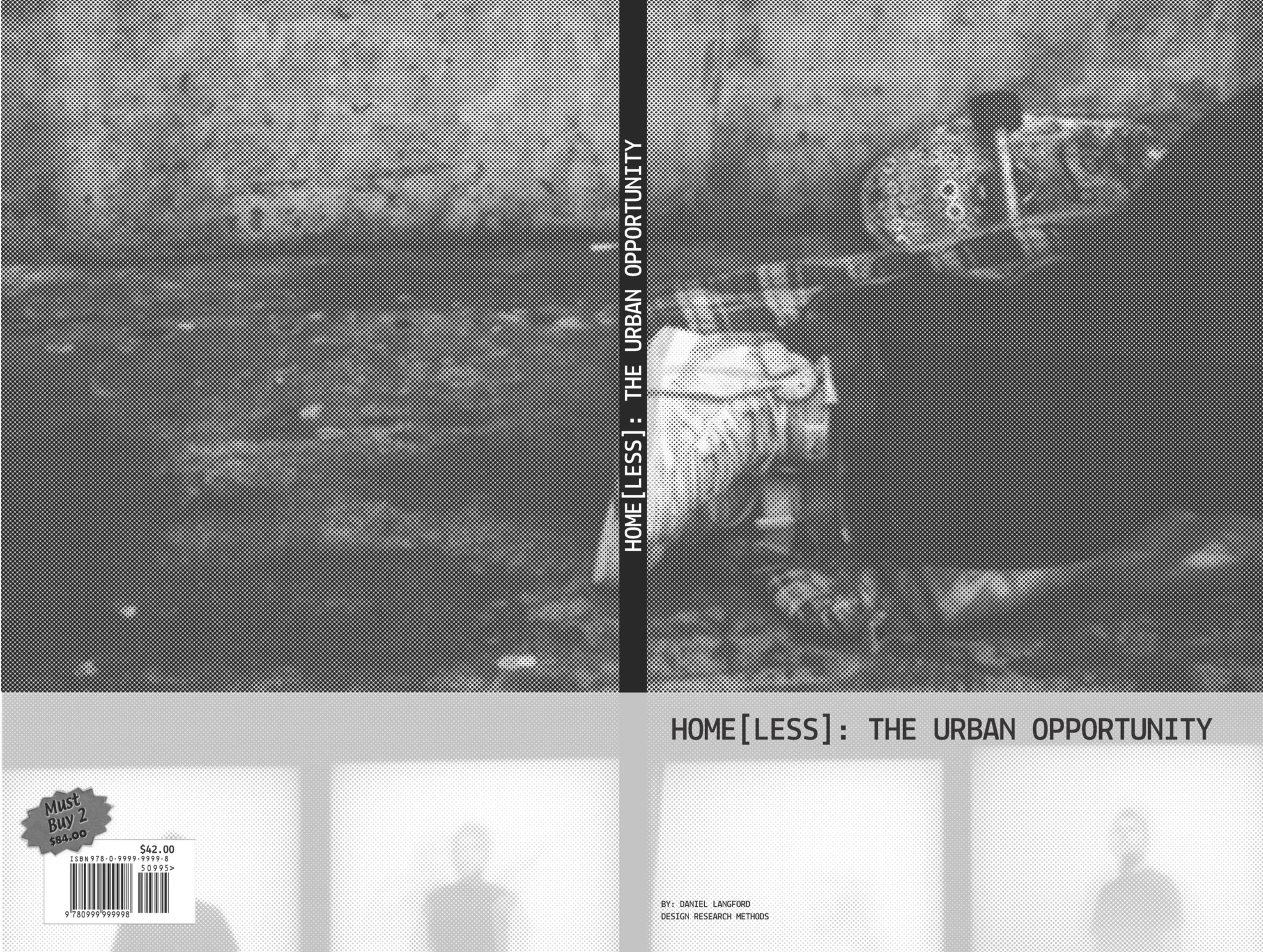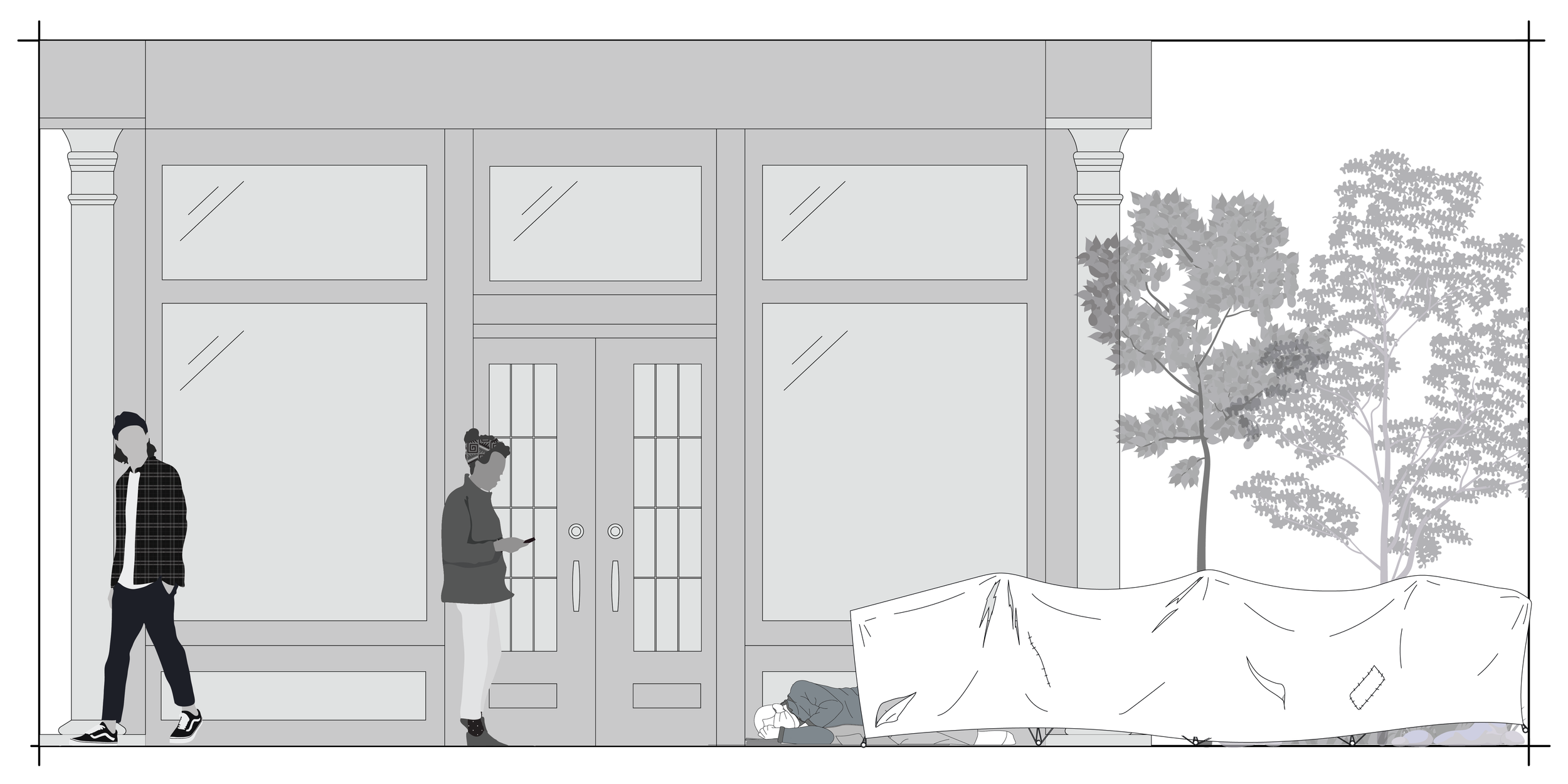HOME[LESS] - THE URBAN OPPORTUNITY
The focus of this book is to provide a comprehensive and multidisciplinary analysis of homelessness, its causes, consequences, and potential solutions. My research draws on a wide range of disciplines, including sociology, economics, psychology, public policy, and social work, to provide a holistic understanding of this complex issue. I examine different aspects of homelessness, such as its prevalence, characteristics, and trends, as well as the social, economic, and political factors that contribute to its persistence.
My research also includes an analysis of the policies and interventions that have been implemented to address homelessness, and their effectiveness and limitations. I provide case studies of different approaches and strategies, including housing first, harm reduction, and community-based models, to illustrate the diversity and complexity of the policy landscape.
"Invisible Souls”
Daniel Langford & Francis Hagood
Thesis [Coming Soon]
Louisville, Kentucky & Location of Homeless Shelters
From Crisis to Community: A Suburban Response to Urban Homelessness” presents a new approach to addressing homelessness within the suburban context. The project is inspired by the evolution of cities and urban sprawl beyond the downtown core. This thesis, focused on Louisville, Kentucky, offers a case study applicable to cities across the United States.
Central to this initiative is the belief in housing as a fundamental human right, complemented by equal emphasis on access and opportunity. By analyzing and integrating job data and public transportation maps, the project strategically identifies key geographic points to optimize homeless individuals’ access to employment, housing, and essential services.
Through this proposed suburban typology for transitional housing, the project aims to foster community on and off the site. In conclusion, “From Crisis to Community” proposes a holistic solution to transitional housing and homelessness, recognizing the interconnectedness of housing, employment, and community support. By prioritizing inclusivity and leveraging existing resources, this approach strives to empower individuals, promote social cohesion, and build a more compassionate society for all.
My proposal revitalizes an existing 4.5 acre grey field with critical adjacencies to educational and religious centers, commercial cores, and transportation networks.
Inspired by the evolving landscapes of cities and urban sprawl, this project, centered 4 miles east of downtown Louisville, Kentucky, along a primary artery offers a blueprint applicable to communities and cities across the United States.
At the core of this initiative lies a fundamental belief this housing is a basic human right, underpinned by equal emphasis on access and opportunity.
Beginning in the 30s, 40s, and 50s homeless shelters were created in the downtown core within established communities. However, following the great migration to the suburbs the community left these shelters, and the area increasingly became more privatized.
Presently, cities across the United States like Louisville, Kentucky due privatization these shelters have been disconnected from their supporting communities and left in an area without appropriate resources.
This project is more than just a case study to me. On Because on November 5th, 2018, my family and I found ourselves homeless.











